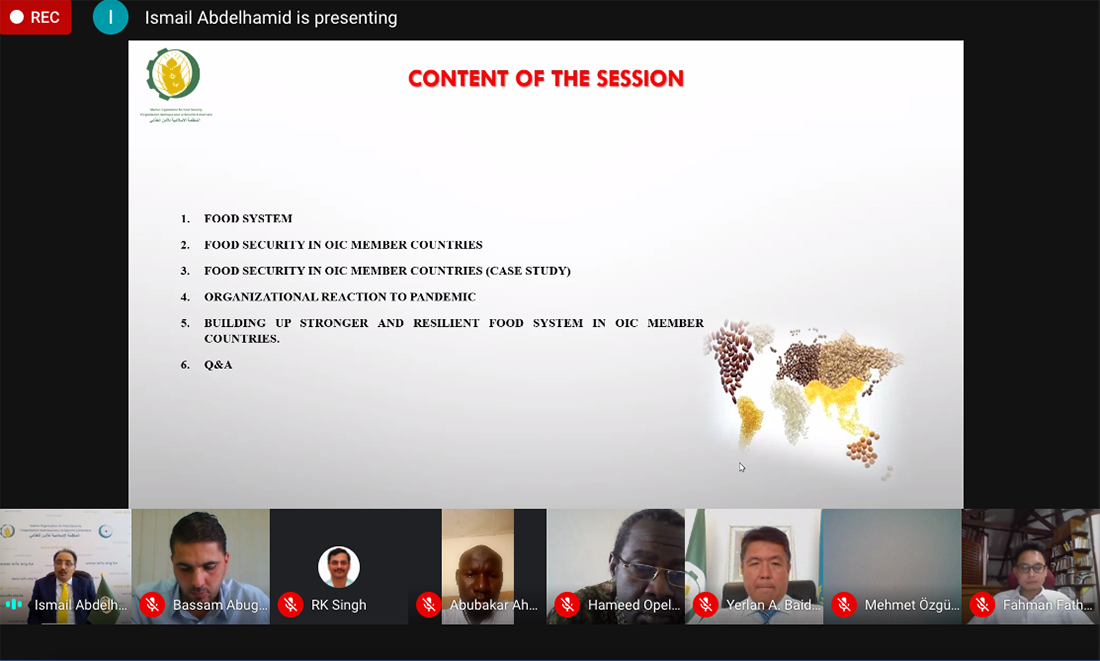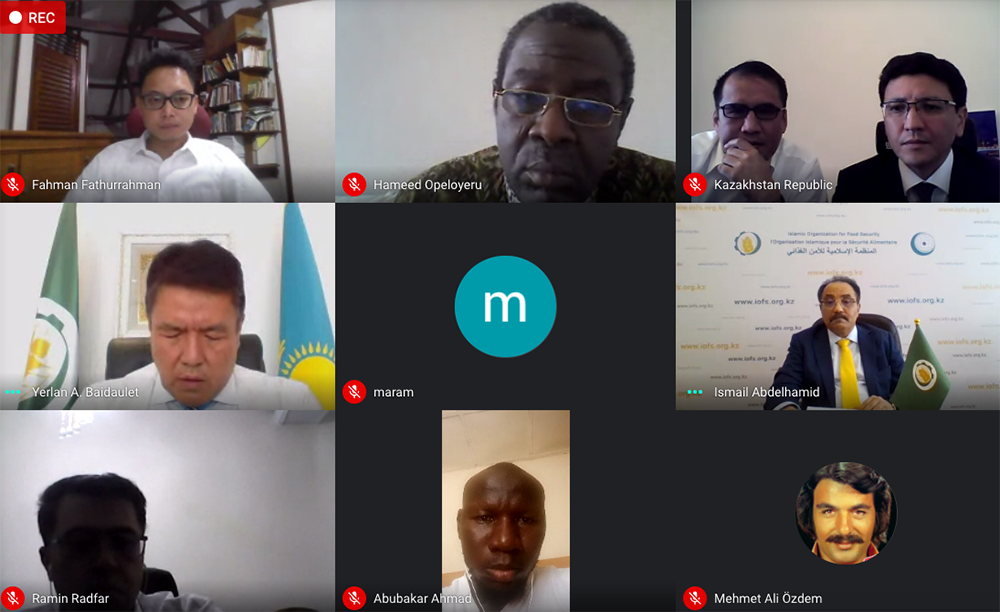The IOFS continues its series of themed webinars, devoting the second session to food security itself. The webinar ‘Building Up a Resilient Food System in OIC: One Step Forward’ launched on June 24, 2020, was run by Dr. Ismail Abdelhamid, the IOFS Adviser on Research and Technology. He spoke about the exceptional challenges that the food systems around the world faced this year, namely the pandemic and severe locust outbreaks in some of the OIC countries. The challenges exposed the vulnerabilities of the food supply chains and exacerbated hunger, malnutrition, and food insecurity worldwide.
Thus, food security is becoming increasingly important and the need for stronger, more resilient food systems is apparent. Dr. Abdelhamid stresses that strong collaboration between the OIC countries, OIC partner institutions and international organisations is essential for the achievement of global food security.
He shared a few case studies, notably, the UAE that was able to enhance its position in the global index significantly in just two years after the establishment of the Food Security Office. The UAE is expected to enter the top 10 food-secure countries by 2021. Bangladesh also treats food security issues seriously, monitoring them with the help of several governmental bodies.
Dr. Abdelhamid shared the available food security data of OIC countries for 2019, noting that there’s much to be improved. He urged all member countries of OIC to strive towards more efficient food systems, increase farming productivity and invest more in agriculture and high-tech solutions.
The webinar also raised discussions on food security measures taken by the OIC institutions. For instance, the International Trade Finance Corporation allocated $850 mln to OIC member states to help cushion the impact of the pandemic. In turn, the IsDB established a special Strategic Preparedness and Response Facility worth $730 million to mitigate the negative socioeconomic impact of the pandemic.
The IOFS is conducting a sufficient number of programmes to handle the various food crises. The upcoming Gene Bank Workshop aims to encourage the OIC members to develop a more modern, scientific approach towards the renovation of food systems. Water Management, Reverse Linkage Programmes are also some of the many tasks the IOFS assumed to achieve its goal of global food security.
Around 30 people participated in the webinar and over 60 viewed it on Facebook.
You may find the recorded session in a Video Gallery section on our website. 







